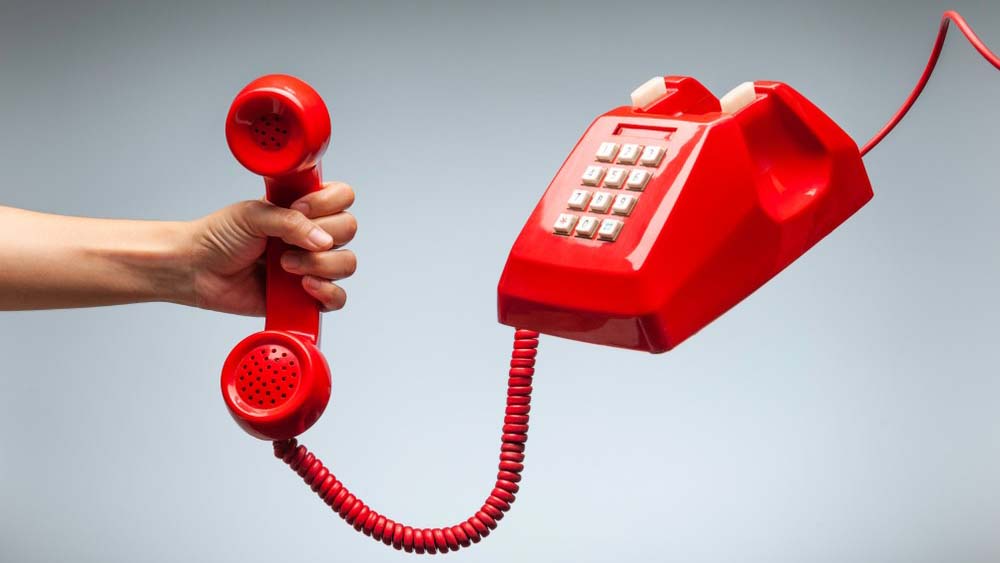Speaking on the telephone is very different in English than other European cultures. First of all, English-speakers refer to themselves and the other person in third person. You say:
‘Hi, this is Lucia’ and not, ‘Hi, I am Lucia.’ And ‘Is this John?’ and not, ‘Are you John?’
This is different in other languages and so it is important to teach proper telephone etiquette.
Beyond that, here are some essential telephone vernacular to help your students make confident phone calls in English.
Calling people
Intermediate
To answer a phone call.
A caller – person who calls
‘There is a caller on the line who wants to upgrade their package with us. Can you deal with it?’
To call someone/ to ring someone
‘Hello, I rang you yesterday about the problem with our electricity bill.’
Irregular verb: To ring, rang, rung.
To hang up the phone – when the call ends.
‘She ended the call and hung up the phone.’
Irregular verb: to hang up, hung up, hung up
To pick up the phone – when the call begins
‘I am not picking up any more calls from them today. They’ll have to email.’
To return a call/ to call someone back.
‘I can’t speak right now, I’ll call you back this afternoon.’
To receive a missed call.
‘Hello, I received a missed call from you this morning and so I am calling you back.’
To hold the line – to wait for someone to answer while listening to music/ to ask someone else to wait while you find information.
‘Please hold the line while we try to connect you to the right department.’
To be put on hold – when you are waiting for someone to answer your call and you hear music.
‘I have been put on hold for the last twenty minutes!’
Advanced
To dial a number – put a telephone number into your phone
‘In the USA you dial 911 for emergencies.’
To get through to someone on the phone – to connect with someone.
‘Hello, I am trying to get through to Sarah.’
To get cut off –the phone connection is interrupted by accident.
‘ We got cut off because the train went through a tunnel.’
The phone line is engaged or busy – you can’t connect because the line is already busy.
‘Every time I call them, the phone is always engaged!’
Irregular verb: To hold, held, held
Speaking practice: role plays
Help your student practice their telephone skills with these role plays. The tutor is the caller and the student receives the call, representing their company. For more telephone role plays, check out these ideas.
Role play one: The caller asks to reschedule a meeting. The person they wish to speak to is not in the office and so the receiver must sort out the problem or put them on hold.
Role play two: The receiver of the phone call must call the caller back after getting cut off and apologise. The caller is a big client who has requested some information.
Role play three: The student is a sales person who must make a ‘cold call’ to the tutor to try to sell them a product.
Mobiles, messages and the internet
Cell phones
A headset – hands-free device connected to your phone
A smartphone – a modern mobile with internet
To buy more credit for your phone (for pay per call contracts).
‘Hello, I’d like to buy $20 of phone credit please.’To charge your phone battery.
To have coverage – the mobile network covers your area so you can make calls.
‘Oh no, the coverage here is terrible. I can barely hear you!’
To run out of battery – when the level of your phone battery decreases so you have to charge it.
‘My phone has run out of battery. Does anyone have a charger?’
The telephone network is down – the network doesn’t work temporarily.
‘The mobile network seems to be down right now, because I can’t make any calls.’
Voicemail/ to send a voicemail – voice messages on your mobile.
Sending messages
To text someone/ to send a text message.
To whatsapp someone/ to send a whatsapp.
Internet
Wireless network
WIFI /why-fy/
Making a phone call
Greeting people on the phone
Hello, this is Alessandro.
Alessandro speaking.
Answering when you don’t know who is calling
Who is calling please?
Who is on the line please?
Ending a call
It was a pleasure to speak to you.
It was good to hear from you (when you were waiting for the call).
Speak soon.
Have a nice day.
We’ll be in touch.
Final thoughts
What telephone vocabulary have we missed? Put them in the comments below and we’ll add them to the list. Happy teaching!

